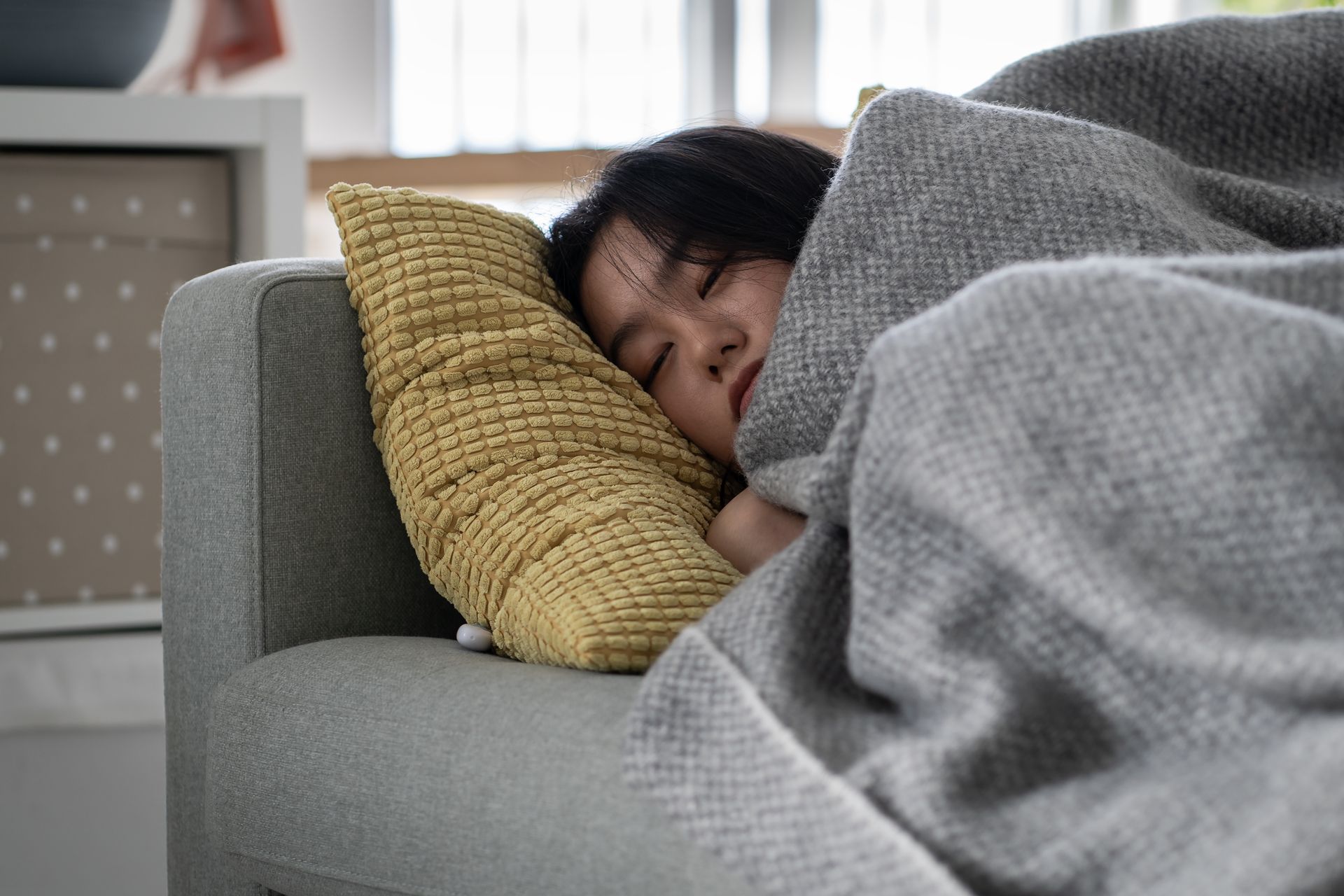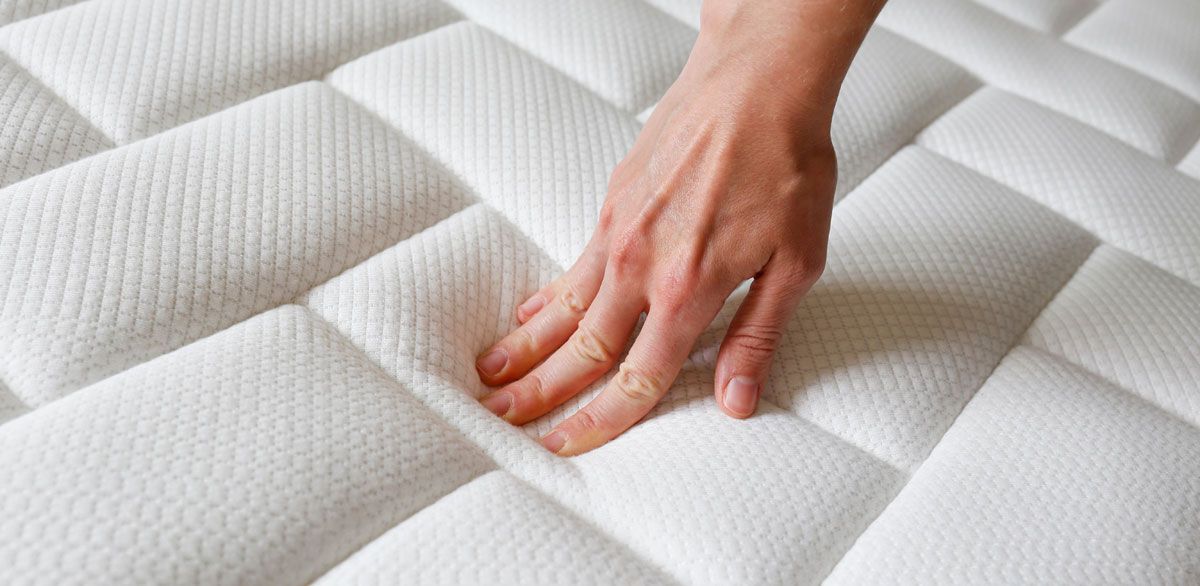
Everyone’s been there. You fall asleep watching TV or scrolling through your phone and wake up the next morning on the couch instead of in bed. For many young people, couch sleeping can feel like no big deal. Some even prefer the convenience or coziness of the couch to their mattress. But while the occasional nap on the sofa won’t do much harm, making a habit of sleeping on the couch comes with real health consequences.
Even if you’re young and healthy now, consistently choosing the couch over a proper mattress can set you up for back pain, poor sleep quality and long-term posture issues.
Couches Aren’t Built for Sleep
The biggest issue is that couches are not designed for full nights of rest. They’re built for sitting, lounging and supporting your body in an upright or reclined position, not lying flat for 6–8 hours. Common problems with couch sleeping:
- Lack of even support:
Couch cushions compress at different rates, and the seams or gaps between them create pressure points that can worsen back and hip pain.
- Restricted space:
Most couches are narrower than beds, which means your body twists or curls into awkward positions to fit.
- Heat and airflow:
Upholstered couches don’t breathe like mattresses. Sleeping on one for hours can trap heat and make you sweat.
- Hygiene concerns:
Couches aren’t designed with removable, washable covers the way mattresses use sheets. Sleeping on them nightly can make the upholstery dirty and harder to keep sanitary.
- Firmness imbalance: Couch cushions often sag in the middle but are firmer near the edges, causing your spine to curve unnaturally.
A sore back in the morning after sleeping on a couch does not mean the couch is bad—it just means you’re using it for something it wasn’t designed to do.
Back and Neck Pain
Even young people with strong muscles and flexible joints can wake up sore after a night on the couch. Without proper support during long periods of sleep, people often wake up with:
- Tightened muscles in the back and neck.
- Pressure points and irritated nerves.
- Stiffness and difficulty moving the next day.
While one night might just leave you feeling a little sore, repeated couch sleeping builds cumulative stress on your musculoskeletal system. Many people eventually experience chronic back or neck pain.
Poor Sleep Quality
Couches also make it harder to get restorative sleep. Because you’re forced into uncomfortable or constrained positions, you may toss and turn more often. This can reduce the amount of time spent in deep and REM sleep, which is the stage critical for memory, recovery and overall health.
Circulation and Breathing Issues
The narrow surface of a couch can cause your limbs to hang awkwardly off the sides or curl into tight positions. This restricts circulation and may cause numbness or tingling in the arms and legs.
In some positions, sleeping on a couch can also restrict breathing. For example, propping your head too high with couch cushions can tilt the neck and close off airways. This not only disrupts sleep but may worsen conditions like snoring or mild sleep apnea.
Long-Term Posture Problems
Young bodies are resilient, but that doesn’t mean they’re immune to long-term effects. Regularly sleeping on an unsupportive surface can gradually alter posture. Over time, this may result in:
- Rounded shoulders.
- Tight hips and hamstrings.
- Spinal misalignment.
These changes make everyday movement less comfortable and increase the likelihood of future injuries.
Mental Health Connections
It’s not just your body that suffers. Poor sleep quality from couch sleeping can negatively impact your mental health. Studies show that consistent lack of restorative sleep increases the risk of anxiety, depression and mood instability. Young people may not feel these effects immediately, but couch sleeping creates patterns that can impact well-being over time.
Why a Good Mattress Matters
While the couch may feel convenient in the moment, nothing replaces the health benefits of a proper mattress. A quality mattress:
- Keeps your spine in neutral alignment.
- Distributes body weight evenly to reduce pressure points.
- Provides enough space to stretch, move and breathe comfortably.
- Supports deeper, more restorative sleep cycles.
Ditch the Couth and Sleep Better With Our Spokane-Made Mattresses
At Twilight Bedding, we believe everyone deserves more than just “good enough” sleep. Our mattresses are designed to provide the support, comfort and durability you need to wake up refreshed, not stiff from the couch.
Contact us at Twilight Bedding today by calling our North Spokane showroom at (509) 413-2431 or our Spokane Valley showroom at (509) 926-2333 and explore our collection of innerspring, latex and custom mattresses. Discover how much better life feels when you give your body the rest it deserves.






